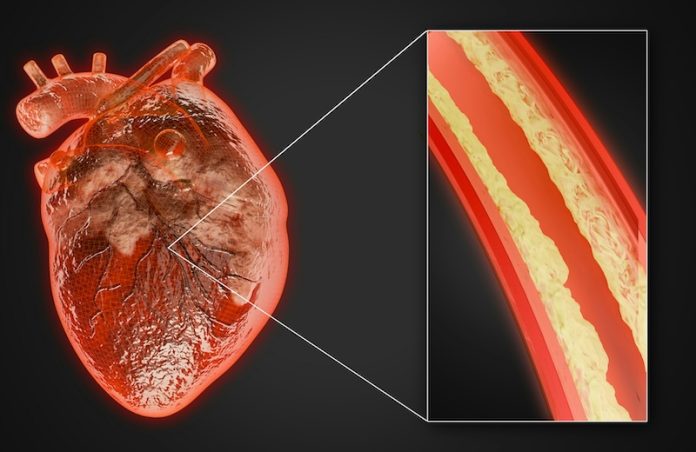
Scientists have made a groundbreaking discovery that could pave the way for new drugs to lower “bad” cholesterol, also known as LDL cholesterol, and potentially prevent heart attacks and strokes.
The research, conducted by the National Institutes of Health (NIH), relied on a cutting-edge tool called cryo-electron microscopy (cryo-EM), a type of microscope that freezes molecules and captures their structures in incredible detail.
This breakthrough has opened new doors for understanding and combating cardiovascular disease.
The cryo-EM technology, which won its inventors the Nobel Prize in 2017, allowed researchers to take a “freeze-frame” look at LDL cholesterol molecules for the first time.
By preserving the LDL’s structure in a frozen state, scientists could observe how this type of cholesterol builds up in the bloodstream, contributing to artery blockages.
The technology is revolutionizing biology and medicine, helping researchers uncover the molecular details of processes that were previously invisible.
Low-density lipoprotein cholesterol, or LDL, is commonly referred to as “bad” cholesterol because of its role in causing plaque buildup in arteries. This plaque can narrow blood vessels, reducing blood flow and increasing the risk of heart attacks and strokes.
LDL is not entirely harmful—it helps transport cholesterol to cells for energy, repair, and hormone production. However, when LDL levels are too high, it can accumulate in arteries, triggering inflammation and forming dangerous blockages.
One condition where LDL becomes particularly problematic is familial hypercholesterolemia (FH), a genetic disorder that affects about 1 in 250 Americans. People with FH have extremely high LDL levels from birth, putting them at a much greater risk of developing heart disease at a young age.
Until now, treatments like statins and other cholesterol-lowering drugs have been the primary approach to managing FH, but the underlying mechanisms of LDL buildup weren’t fully understood.
Using cryo-EM, NIH researchers captured 3D images of LDL molecules, revealing new details about how they interact with LDL receptors in the body. This insight offers hope for developing treatments that improve how these receptors remove LDL from the bloodstream.
Dr. Alan Remaley, a senior investigator at the NIH, explained that the findings suggest a potential new strategy for boosting the effectiveness of LDL receptors, which could lead to better therapies for FH and other cholesterol-related conditions.
Cryo-EM technology is not only transforming cholesterol research but also revolutionizing science more broadly. By providing highly detailed views of biological molecules, it helps scientists understand how these molecules work and how to address defects or harmful interactions.
The tool is expensive, with each machine costing $2 to $3 million, but its impact on research has been immense.
The discovery comes with practical advice for heart health as well. While genetics play a role in cholesterol levels, diet is also a major factor. Foods high in saturated fats, such as butter, cheese, and fatty meats, as well as trans fats found in margarine and fried foods, can raise LDL cholesterol levels.
Replacing these with healthier options, like fish, nuts, seeds, avocados, and plant-based oils, can significantly reduce cardiovascular risk. Dr. Danny J. Eapen, a cardiologist at Emory University, emphasizes the benefits of olive oil as a heart-healthy alternative to butter and margarine.
This breakthrough not only sheds light on how LDL cholesterol contributes to heart disease but also offers hope for new treatments that could save lives.
By combining advanced technology like cryo-EM with practical lifestyle changes, scientists and individuals alike are taking steps toward better heart health.
If you care about coffee, please read studies that drinking coffee this way can help prevent stroke, heart disease, and drink coffee after breakfast, not before, for better blood sugar control.
For more information about nutrition, please see recent studies about natural supplement that could relieve anxiety, and results showing this common food oil in the U.S. can change genes in the brain.
Copyright © 2024 Knowridge Science Report. All rights reserved.



